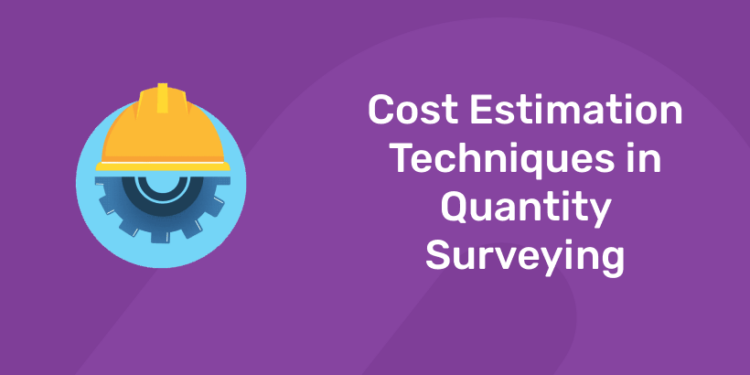In the dynamic world of construction, the importance of accurate cost estimation cannot be overstated. It is a fundamental aspect that significantly impacts the success and profitability of any construction project. At the heart of cost management lies the profession of quantity surveying, dedicated to the meticulous management of costs and value in construction projects. In this blog, we will delve into the essential methods employed by quantity surveyors to estimate costs, ensuring project feasibility and effective cost control. Accurate cost estimation is the backbone of successful construction projects. It sets the foundation for informed decision-making, resource allocation, and financial planning throughout the project lifecycle.
An underestimation can lead to financial constraints, delays, and compromises in quality, while an overestimation may result in inflated budgets and lost opportunities. A comprehensive cost estimation process is, therefore, vital to ensure a project’s financial viability and overall success. Quantity surveying is a specialized profession that revolves around managing costs and value in construction projects. These professionals, also known as construction economists or cost consultants, play a pivotal role in the pre-contract and post-contract stages of a project. They are involved in preparing estimates, tender documents, cost plans, and valuations, as well as conducting cost analysis and recommending cost-saving measures
Become a skilled Quantity Surveyor and excel in your career! Free Demo Classes Here!
Elemental Cost Analysis (ECA)
Elemental Cost Analysis breaks down a project into its elemental components (such as foundation, walls, roofing, finishes, etc.) and assigns costs to each element based on historical data or industry standards. This method provides a quick and straightforward estimate in the early stages of a project.
Approximate Quantities Method (Preliminary Estimation)
The Approximate Quantities Method involves taking off quantities from drawings and then multiplying them by approximate rates per unit to arrive at a rough cost estimate. While it is less accurate than other methods, it can provide a useful initial estimation.
Comparative Method
In this technique, the current project’s cost is estimated based on similar completed projects’ costs, taking into account variations and adjusting for differences. The Comparative Method is particularly useful when historical data is available for similar projects.
elevate your career with quantity surveyor course ! 100% placement assistance !
Parametric Cost Estimation
Parametric cost estimation relies on statistical relationships between historical cost data and project parameters (e.g., area, volume, number of rooms) to develop cost models. These models allow quantity surveyors to estimate costs based on specific project characteristics.
Cost Estimation Using Cost Indices
Cost indices take into account inflation and market fluctuations and are used to adjust historical cost data to the present time. Quantity surveyors utilize these indices to estimate current costs more accurately.
Computer-Aided Estimation
Advancements in technology have revolutionized the quantity surveying profession. Computer-aided estimation involves using specialized software to generate cost estimates based on input data, drawings, and project specifications. This approach enhances accuracy and efficiency, reducing the time spent on manual calculations.
Building Information Modeling (BIM) for Cost Estimation
BIM is a powerful tool that allows quantity surveyors to create digital representations of a project, including 3D models and relevant data. BIM facilitates the integration of design, construction, and cost information, enabling more accurate and detailed cost estimation.
Take the first step towards a successful career! Learn Quantity Surveying from Expert Mentors!
Reserve Analysis
Reserve analysis involves setting aside contingency reserves to account for uncertainties and potential risks that may impact project costs. Experienced quantity surveyors use historical data and risk assessments to determine appropriate contingency amounts.
Vendor Quotes and Market Surveys
For specialized or unique items in a project, quantity surveyors may seek vendor quotes to obtain accurate cost estimates. Additionally, market surveys help gauge the current market prices of materials and labour, ensuring more precise estimations.
Cost estimation is a crucial aspect of quantity surveying that can make or break a construction project’s success. By using a combination of traditional techniques, parametric estimation, computer-aided tools, and leveraging technology like BIM, quantity surveyors can provide accurate cost estimates at various stages of a project. Moreover, continuous monitoring and adaptation throughout the project’s lifecycle help control costs and maintain financial feasibility. As construction projects become more complex, quantity surveyors must stay updated with the latest methodologies and embrace innovative technologies to optimize cost estimation practices.
Start a rewarding career in Quantity Surveying! Book for Free Demo Classes Here!






















